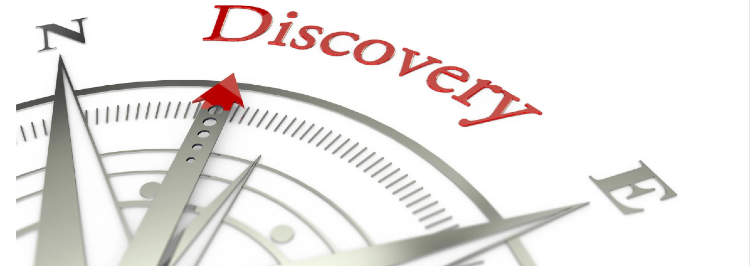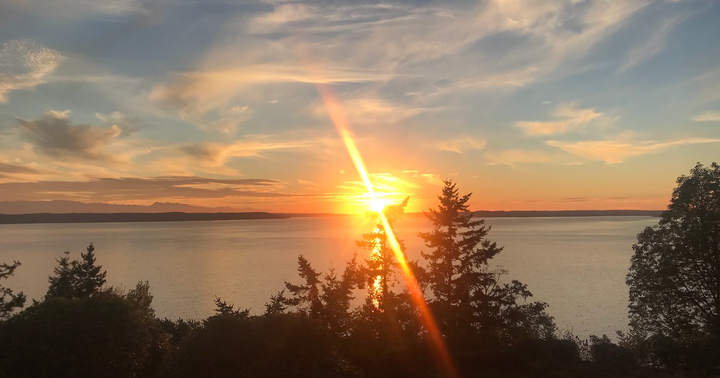But Now I See: The Journey of Reflection
September 11, 2025 - As the years went by, the image that I had created for my life began to crumble as I embarked on what I now recognize as the journey of ecological discipleship. By James Amadon

This is the eleventh piece in my series, “The Journey of Ecological Discipleship." You can find the first ten pieces HERE. This piece looks deeper into the Reflection stage of the journey.
Thanks for reading - James

Coming Into Focus
In my early pastoral career, I had an image of my professional life that looked something like climbing the denominational ladder. In many ways, the image made sense: I was involved in denominational life and enjoyed it, I respected my ecclesial superiors and the work they did, I could imagine myself contributing in a useful way, and climbing the ladder was not as difficult in my small denomination as it was in other church bodies.
As the years went by, this image began to crumble as I embarked on what I now recognize as the journey of ecological discipleship. It began to break apart when I started to explore a deep longing to connect my faith and my love for the earth. I dove into the world of ecotheology and began to understand the root causes of humanity's disconnection with the wider creation, and the ways in which Christian faith and practice have contributed to the desecration and destruction of the earth. As I continued my journey, I discovered people experimenting with new forms of faith and life that excited me and encouraged me to explore new pathways in my own life. I spent more time outside, praying among trees and along trails. I was more intentional in learning about where I lived. I shared my journey with trusted companions. Gradually, a new image of the future began to come into focus. I had entered the revisioning stage of the journey, and it changed the direction of my life.

Taking Time for Reflection
Each stage in the journey of ecological discipleship includes times of reflection and discernment. There comes a point in the journey, however, in which an extended time of reflection is needed. What defines this stage of the journey is the invitation to 1) remember where the journey has taken you and how you have changed, 2) articulate who and where you are now, and 3) discern where to go from here. The key practice is listening - to your life, to God, to those traveling with you, and to the community of creation that surrounds you.
Here are some questions that help with this work of deep reflection (you could easily substitute "we" for "I" to do this collectively).
- Where have I experienced deeper connection to God and the community of creation (Don't forget this includes our fellow humans)?
- What causes of disconnection and suffering have become more apparent to me?
- What examples of ecological faith in action have inspired me?
- Where do I experience the integration of my faith/spirituality with the place that I live?
- What have I learned about my place? What has it taught me?
- What has sparked my imagination? Have I had moments of "What if..."?
Spending time with these questions alone and with trusted members of your community can bring clarity to the path that you have traveled as well as to the one that lies ahead.

Turning Toward Home
An important part of this reflective process is turning one's attention to the path in front of you. This will require, among other things, thinking about home. Home is the place one feels rooted and known. A transformative journey typically calls you away from your home (literally and/or metaphorically). Returning home after such a journey can be complicated.
Some will be full of excitement, looking forward to returning home and sharing what they have experienced and learned. This was the dominant feeling after a recent EDIFY week with middle and high school students (This is Circlewood's Ecological Discipleship Immersion for Youth program, and you can read about it HERE). After their week-long journey, the students were excited to share their experiences and hopes for the future with their families and home congregations.
Others will feel more ambiguous about home, for they may sense that what they have seen and heard, and the change they have gone through, may not be understood, or even welcome, in their home family or church community. I have had many conversations with people who have embraced a more ecologically-conscious faith and then found themselves feeling somewhat disconnected with their loved ones, or their home congregations. They have changed, but their home community has not.
And there are still others for whom a return home is not possible. They feel like Frodo at the end of his transformative journey in the Lord of the Rings saga, who says, "There is no real going back. Though I may come to the Shire, it will not seem the same; for I shall not be the same." This was my experience when I came to the difficult conclusion that, for me, continuing on the journey meant leaving my church and pastoral ministry to start what would become Circlewood.
When a significant journey begins, there is no way to predict what the eventual turn toward home will be like. One can only set off and trust that the Spirit will continue to lead the way, that we will connect with companions on the journey, and that we will find a home at end of the journey.

Discovering Your Call
The final aspect of deep reflection is discovering your unique gifts for earthkeeping and how you might contribute to the movement for change in your home community. Whatever and wherever home ends up being, there is good work to be done, and you get to be a part of it. We'll turn our attention to this stage of the journey in my next piece.
With you on the Way,
James
Let me know what you think - james.amadon@circlewood.online.




Comments ()